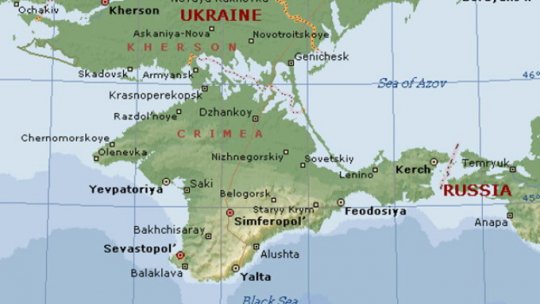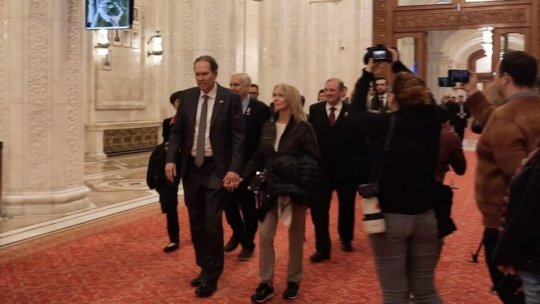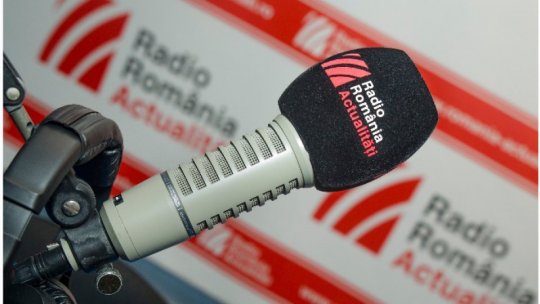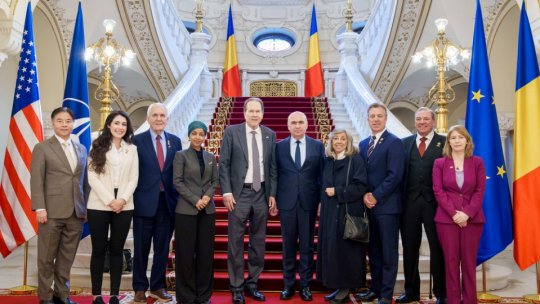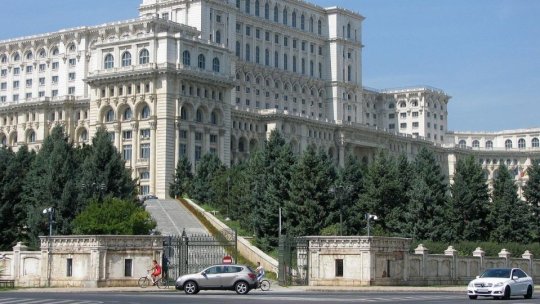INF Treaty at Stalemate. What next?
Intermediate-Range Nuclear Forces (INF) Treaty, signed in 1987 between Washington and Moscow, has been suspended by the United States and Russia.
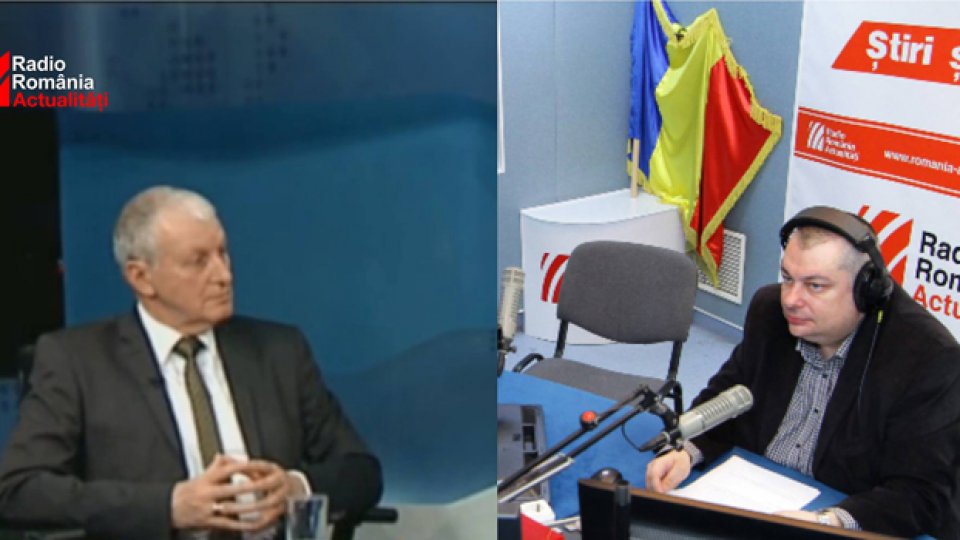
11 Februarie 2019, 15:13
Radio Romania News Producer Radu Dobriţoiu, Military Reporter: Intermediate-Range Nuclear Forces (INF) Treaty, signed in 1987 between Washington and Moscow, has been suspended by the United States and Russia. The two superpowers have announced they have suspended participation in the treaty and have notified intention to withdraw within six months. In an official announcement, North Atlantic Alliance reminds that after nearly six years of US and Allied engagement with Moscow, on 4 December 2018, NATO Allies declared that Russia has developed and fielded a missile system, the 9M729, which violates the INF Treaty, and poses significant risks to Euro-Atlantic security. Since that announcement, Washington and other Allies have remained open to dialogue and have engaged Moscow on its violation, including at a NATO-Russia Council meeting on 25 January 2019. NATO Communiqué states: "Allies regret that Russia, as part of its broader pattern of behavior, continues to deny its INF Treaty violation, refuses to provide any credible response and has taken no demonstrable steps toward returning to full and verifiable compliance" (NATO Statement, 1 February 2019, NATO Press Office). Theme of "Euroatlantica" radio show of Radio Romania News, broadcasted on February 8, analyzes latest decisions that could lead to a nuclear arms race between the United States and Russia, all with an impact on global geostrategic balance with an influence on the Euro-Atlantic security. Special Guest - Lieutenant General (r) Virgil Bălăceanu, Military Analyst.Phone interventions - General (r) Decebal Ilina, former Secretary of State for Armaments in the Romanian Ministry of National Defense, as well as in the Ministry of Industries, former Chief of the Military Intelligence Directorate and Military Counter-Espionage Division. Phone interventions - Radio Romania correspondents in Moscow, Israel and the United States.
Radu Dobrițoiu: General, a treaty that marked the world contemporary history, signed in 1987 after years of negotiations by Presidents Ronald Reagan and Mikhail Gorbachev. Does this treaty unfortunately enter its final period? Why did the two superpowers decide to suspend participation in this treaty?
Virgil Bălăceanu: We will try to find an answer (…) we're talking about geo-strategy. We should start from two moments that have somewhat changed the relationship between Russian Federation and NATO and, more than that, between Russian Federation and United States. We are thinking about August 2008, Georgia's invasion – that unfortunately was passed as a signal both by NATO and the US. Then March 2014 - invasion of Ukraine, Crimean invasion, reactivation of insurrectional movements in Donbas area and the fact that they received support change the equation data. From that moment on, arms race is being rethought. We speak in terms of conventional armament. Well this time, and you said it right, Radu, we can assume that if things are not yet set for discussion, talks are also expected in the following six months. Of course, February 2019 also means a restart of the nuclear arms race.
Radu Dobriţoiu: You reminded of Ukraine’s invasion by Russia. Another agreement previously guaranteed by Russia in reference to Ukraine’s borders.
Virgil Bălăceanu: Not only the border agreement...
Radu Dobriţoiu: It started from Ukraine’s nuclear arsenal, which was given to Russia, and following this exchange, Ukraine received guarantees from Moscow that its borders would be respected.
Virgil Bălăceanu: I think Ukrainians regret they took a political decision that looked wise at the time. You never know what awaits you in the future; they gave away their nuclear arsenal, if they kept it, Ukraine would have probably become another type of actor in its relationship with Russian Federation. It would have certainly been taken into account.
Radu Dobrițoiu: Maybe in Europe, too.
Virgil Bălăceanu: Maybe in Europe, too. Russian Federation guarantees Ukraine's borders as Ukraine destroys the whole nuclear arsenal. However, in March 2014, Russian Federation violates the borders of Ukraine. In fact, we can say that Moscow, Putin administration, Putin leads an aggressive policy that does not only involve the problematic issue of hybrid, economic, imagistic, cyber warfare, but also conventional types of action. After all, Russia achieves its strategic objectives simply by conquering, by invading.
Radu Dobrițoiu: With strong arguments that remind us of the Cold War period.
Virgil Bălăceanu: Cold war is present. In fact, we should talk about the three "Rs" at the moment (…)
Radu Dobriţoiu: Recover, repair, reuse..
Virgil Bălăceanu: And "Cold War Redivivus". We are at a stage, it is not recognized yet, many say no, but it is the beginning of the Cold War Redivivus, cold war in a new situation of the relationship between Russia, US and NATO.
Radu Dobrițoiu: Two days ago, in his State of the Union Address, President Donald Trump launched the idea of a new agreement that could include China and other countries.
RRA Correspondent in the United States, Doina Saiciuc, for "Euroatlantica": Former US Ambassador to Russia, also former Deputy of NATO Secretary General, expert Alexander Vershbow of the Atlantic Council says that although withdrawal of United States from INF Treaty will only come into force six months from now, loss of treaty creates a real possibility of an unpredictable and unrestrained arms race between the United States and Russia, in Europe and potentially Northeast Asia. On Tuesday evening, in his Address on the State of the Union, President Trump advanced the idea of a new agreement. "Perhaps we can negotiate a different agreement, adding China and others, or perhaps we can’t - in which case we will outspend and out-innovate all others by far". Ambassador Vershbow suggests, on the other hand, that US and its allies should concentrate above all on conventional solutions that would deny the advantage the Russians hope to win by deploying 9M729 system along NATO's eastern flank. United States and its allies have sufficient nuclear capabilities to deter potential nuclear variants of 9M729. Arms control still has a role to play in preventing an action-response cycle, but attention should be focused on extending the new START treaty before it expires in 2021, and on extension to include boundaries for non-strategic and emerging technologies like supersonic cruise missiles - says Ambassador Vershbow, adding that with collapse of INF Treaty, new START will be the only constraint on Russia's formidable and growing nuclear capabilities.
Radu Dobriţoiu: Phone intervention of General (r) Decebal Ilina, former Secretary of State for Armaments in the Romanian Ministry of National Defense, as well as in the Ministry of Industries, former Chief of the Military Intelligence Directorate and Military Counter-Espionage (…) How much is Euro-Atlantic security affected by US and Russian withdrawal from INF Treaty, withdrawal that will ultimately lead to cancellation of the treaty?
Decebal Ilina: Very much. And I think this exaggerated nuclear arms race should stop, it uses planet's resources for one purpose only, to destroy it. I am optimistic enough. In 1987, during the Cold War, at a time when Europe was dominated by fear, even by fear of a nuclear conflict, I was in a Western European country, the US had installed Pershing missiles in Europe, and the USSR had installed SS-20 missiles in Eastern Europe. Even so, during this Cold War, Reagan and Gorbachev came to an agreement that banned the use of medium-range missiles (with a radius between 500 and 5,500 kilometers). This led to deepening relations and consolidating confidence in one way, made negotiations continue so that in 1991 they would sign for 20 years the famous agreement or treaty for the control and reduce of the number of strategic nuclear bombs…2010, Prague ...
Radu Dobrițoiu: START 1.
Decebal Ilina: START 1, 2010 in Prague, was prolonged for another 10 years, by 2021, by Obama and Medvedev. So, if in these circumstances a settlement could be reached, I find it hard to believe that today, and certainly with all the suspicions that exist - Russians suspect too and accuse (the US, n.a.) of breaking the treaty by installing shield in Romania, Poland, South Korea, Japan in future and say that the Americans surrounded the Russian Federation with a belt of shields, which flagrantly violates provisions of the treaty; Americans say the Russians have developed a new missile, which in a way the Russians confirm - Novator, 9M-729 SS C8 according to NATO terminology - I find it hard to believe that no solution will be found. Of course the Americans also have another interest they do not say, but as President Trump said....
Radu Dobriţoiu: China!
Decebal Ilina: Yes, he said, in his Speech of the Union, to attract other countries too, not only China, because they want to somehow secure, or if not to defend their interests in the West Pacific, because China would have developed over the past 30 years a whole series of missiles that could have been subject of this treaty. But not only China, there is India, Pakistan, there are others, Israel too has developed missiles lately, after 1987. The only solution would be to sit at negotiating table and surely a solution will be found in the next six months until this treaty expires. I do not know who would have the interest - probably you have an answer – to damage the Russo-American relations so badly. There is always a negotiated solution that is much better than to turn back and continue this aberrant armament race. I want to tell you that with this START 2 agreement, each of the two parties has reduced strategic nuclear warheads by 30%, they are entitled to 1,550 nuclear warheads that can be fired either with strategic intercontinental missiles - the Americans have three facilities with 450 such missiles that can carry strategic nuclear bombs at very long distances - either with nuclear submarines - Americans have 14 in the Pacific and the Atlantic and two in each ocean that are constantly operative so that they are not taken by surprise by anyone, either with strategic bombers. So they have enough nuclear warheads for all the strategic targets they each have, whether we're talking about Russia, about the Americans, it could probably destroy the whole planet repeatedly. I do not see why this tremendous arms race should go on.
Radu Dobrițoiu: We think about Moscow again, Moscow is not happy with the defensive ballistic system that includes Deveselu base in Romania, nor with the future anti-missile base in Poland. Russia believes that these systems violate the Intermediate-Range Nuclear Forces Treaty.
RRA Correspondent in Moscow, Alexandr Beleavschi: On Saturday, 24 hours after the US decision to suspend participation in the INF, President Vladimir Putin announced that Moscow will respond in a mirror. He said that Russia would also suspend its participation in the treaty and will not advance new initiatives in the field of disarmament and arms control until the US and its allies respond to Russia's initiatives in this field. In theory, the two major nuclear powers have six months to rescue the treaty, but for the time being, both have begun to work on a new generation of mid-range missiles. Vladimir Putin on Saturday approved start of the work to make such missiles, ground variants of the Kalibr naval missile and the Kinjal Hypersonic Missile, currently aboard MIG-31K aircraft in the Southern Black Sea Military District. Kalibr rockets have been successfully used on surface and submarine ships in the Syrian campaign. Terrestrial variants of the two missiles will have expanded ranges of about 4,000-4500 kilometers, as Russian experts estimate. President Putin's most important statement, as Moscow's authorities stress, is that Russia will not deploy mid-range missiles in Europe or other regions of the world if there are no US missiles in these regions. Currently, Russian diplomacy is trying to persuade European states not to deploy such missiles on their territories. At the same time, Russia rejects as unfounded and a pretext to justify US withdrawal from the INF, American accusations against Russian missile 9M729, the new missile for Iskander M tactical batteries, radius of which would violate the INF Treaty.
Radu Dobriţoiu: General Bălăceanu, Russia is playing the mirror game, as my colleague Saşa Beleavschi said, to everything that's happening and to everything coming from the US. Putin is playing a dangerous game, however, in the context that, as we all know very well, Russia, at economic level, is facing very big problems.
Virgil Bălăceanu: (…) Russian Federation can no longer express itself as a world or European economic power (…) can also no longer express itself as far as technology is concerned – which is not the case in terms of military technology - but today, as a power factor (…) there is the military instrument which Putin uses. Discussing the current situation, we should go back in history to see a few crises over the last century. Missile crises.(…)....
Radu Dobriţoiu: Cuba was very close to the US.
Virgil Bălăceanu: It was very close, 1962 Cuban missile crisis. Settled through negotiations. Next moment - 20 years after, 1982 ...(…) Dismantle of Russia’s SS missiles, in the East
Radu Dobrițoiu: / Pershing /.
Virgil Bălăceanu: As a response, and what is interesting is at that time, US began to dismantle Pershing missiles especially at request of the Germans. Helmut Kohl played a decisive role in this respect. A tense situation had been created in Europe at that time, and it was solved by this INF, these missiles were retreated from the European zone; we are witnessing a new missile crisis. I'd say a cruise missile crisis, because with the intercontinental strategic ballistic missiles...
Radu Dobrițoiu: There is the other agreement.
Virgil Bălăceanu: It is the only agreement valid until 2021 ...
Radu Dobriţoiu: Two years from now .
Virgil Bălăceanu: And the good part is that as opposed to SALT - because START is a continuation of the limitation treaty - it is signed after '91 in two stages START 1, START 2, reduction of strategic nuclear weapons. It stops, does not limit development of cruise missiles. This competition on nuclear armament leads to what we call intermediate ballistic missiles, cruise missiles in particular. Russia continues to be involved in Syria, where it sent several S300 anti-aircraft defense systems. Moscow continues to support Bashar al Assad and, indirectly, Iranian military forces on Syrian territory, allied with the Damascus regime. At the same time, an Iranian general has announced last week that Tehran is planning to increase its range of missile action, so they can hit targets across Europe.
RRA Correspondent in Israel, Dragoş Ciocîrlan, on how Israel sees this situation: Israel is preoccupied with removing Iranian military presence in Syria and with stopping armament of Shi'ite militia controlled by Tehran regime. Strengthening military coordination with Russian forces is necessary to counteract Iranian presence and arming of Hezbollah. These issues will be at the heart of the talk that Prime Minister Benjamin Netanyahu is to have with President Vladimir Putin. S300 batteries will be operational soon, and it is unclear whether first they will be served by Russian, Syrian soldiers or by mixed teams. To avoid incidents, a meeting with Volodea is required. On the other hand, President Vladimir Putin has a major problem with the S300. Orders have decreased, and Kremlin may want to get a Israeli plane shot down for marketing reasons. Iran seeks that Russian shield expands in Lebanon to protect precision missiles based on the premises of Hezbollah terrorist organization funded by Tehran regime. There are serious criticisms towards Moscow that S300 system delivered to Damascus is not activated when Israeli aviation attacks Iranian targets in Syria. By becoming operational, S300 system could be used against Israeli flights to Lebanon and Golan, a situation in which Israeli aviation should destroy S300 batteries. January was a disaster for Quds Force Commander, Qasem Soleimani. Israeli airplanes have shattered command centers and Iranian ammunition hangars in Syria. Attacks lasted for 50 minutes. It was a powerful Israeli response after intercepting a missile launched from Syria to Mount Hermon in Israel. On Feb. 3, many Israeli targets were hit by US aviation at the Syrian-Iraqi border. Three Iranian missiles targeted an American base in Iraq. US Air Force attacked Quds Force Centers frequently visited by Iranian General Qasem Soleimani.
Radu Dobriţoiu: RRA Correspondent in Moscow, Alexandru Beleavschi, updates on a proposal made by Russia through spokesman of Russian Ministry of National Defense. Let's listen to this information.
RRA Correspondent in Moscow, Alexandru Beleavschi: Spokesman for the Russian Defense Ministry, General Igor Konasenkov, said that Russia urges US to return to INF Treaty compliance until the end of its term - August 2. To this end, Russian Defense Ministry calls on US to destroy ground-launched Mk 41 and Tomahawk cruise missiles, target missiles with features similar to mid-range land-based ballistic missiles and attack drones whose features fall under incidence of INF. General Konasenkov said the US military attaché to Moscow was invited to the Ministry to be handed the official note to these proposals.
Radu Dobriţoiu: Mr. Virgil Bălăceanu (…) Moscow comes with proposals for the United States.
Virgil Bălăceanu: Before talking about Moscow, with your permission, I would stop a little bit on Israel. Israel is an unrecognized nuclear power (..) but a recognized force (..) highly experienced in missile defense. Interestingly, US is acquiring Iron Dome systems from Israel in the idea that missile defense will develop in the coming period. On the other hand, it is very interesting that Israel has used, according to latest information, Ukrainian radar to destroy a S300 anti-aircraft missile defense system. Turning to what Moscow claims, yes, it's about launchers. And when we talk about MK41, we're talking about the Deveselu launchers.
Radu Dobrițoiu: "Euroatlantica" at the end. We have discussed current stalemate of the INF Treaty after US and Russia decided to withdraw. Special Guest of the edition was Lieutenant General (r) Virgil Bălăceanu. General (r) Decebal Ilina has contributed with phone interventions. I am Radu Dobriţoiu, initiator of "Euroatlantica", and together with Producer Nicu Popescu, thank you for joining us at Radio România News Channel (RRA).
Source:RRA.Translated by Miruna Matei

